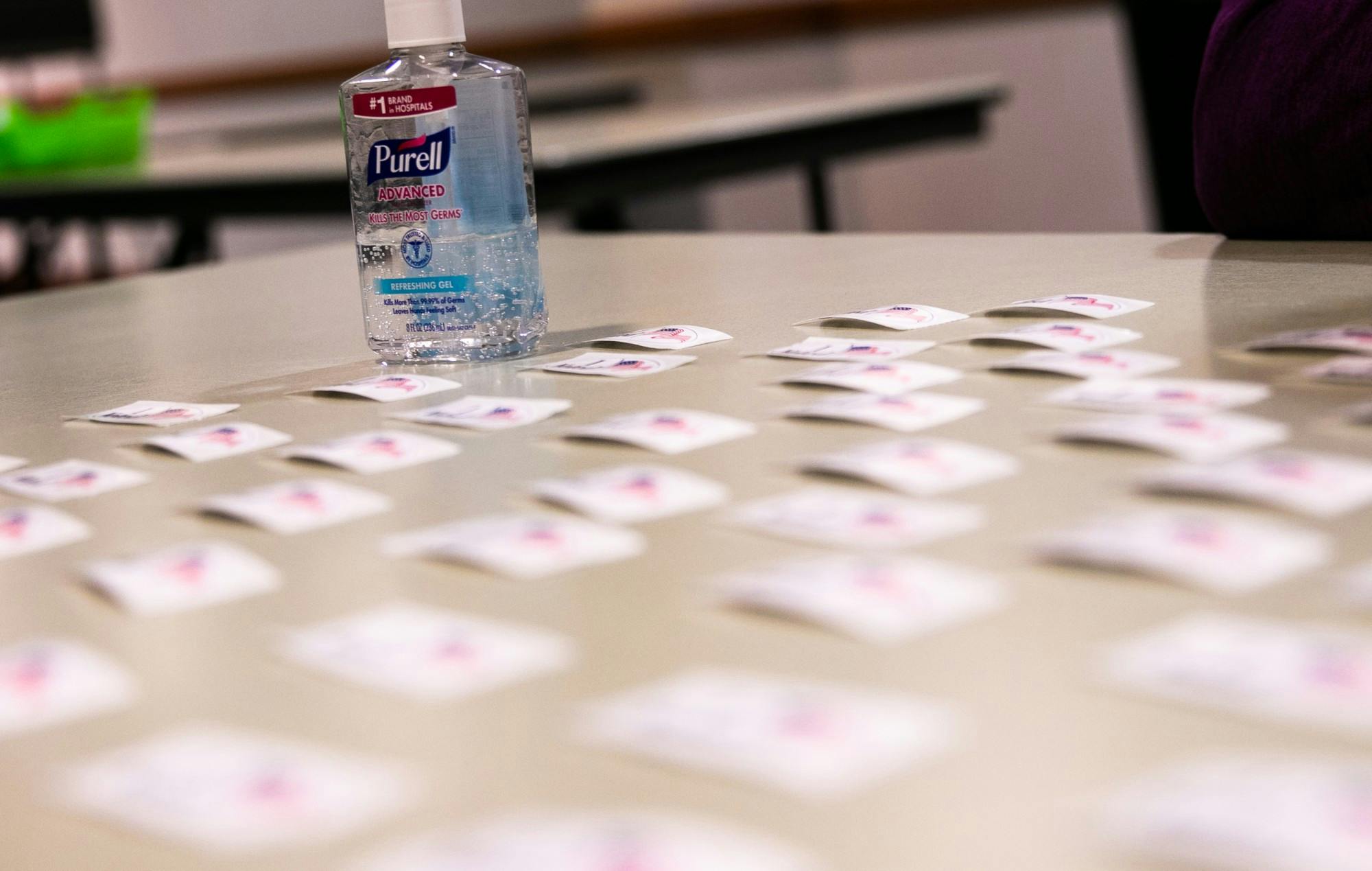Mailed absentee ballot applications do not correlate with voter fraud, according to Daniel Manville, Michigan State University professor of law and director of the Civil Rights Clinic.
Backlash followed the announcement Tuesday from Michigan Secretary of State Jocelyn Benson to mail absent voter applications to all registered Michigan voters for the .
According to a tweet, President Donald Trump threatened to withhold Michigan funding if Benson continued to “illegally” mail unrequested absentee applications.
The passage of 2018 ballot proposal 18-3 permits any registered Michigan voter to request an absent voter ballot without a reason.
Trump deleted a previous version of the tweet that falsely claimed Michigan was mailing voters' ballots, rather than absentee voting applications, according to ProPublica's Politwoops.
Benson responded in another tweet that mailing unrequested absentee applications was within her authority as Secretary of State and was already happening in other states.
The tweets shortly preceded his trip to Michigan with a speech at a Ford factory in Ypsilanti.
Concerns with the announcement center around the possibility for voter fraud — an illegal interference with an election through either increasing a favored candidate's votes or decreasing a rival candidate’s votes.
According to a study by conservative-leaning Heritage Foundation, Michigan had just 11 criminal convictions of voter fraud since 2007. Nationally, there have been 1,285 confirmed cases of voter fraud with 1,110 resulting in a criminal conviction since that time.
Voter fraud includes ineligible voting — illegal registration or voting by individuals who were convicted felons, not U.S. citizens, or otherwise not allowed to vote — and fraudulent use of absentee ballots — requesting absentee ballots and voting without the knowledge the actual voter, obtaining ballots from voters and forging their signature or illegally telling an absentee voter who to vote for.
This isn't the first time voter fraud entered the national discussion.
"Trump, a couple years ago, appointed a commission to investigate voter fraud," Manville said. "The guy that headed it was the governor of Kansas and was on the bandwagon, saying there's all kinds of voter fraud going on ... but that commission only lasted about six months and they had to shut down because they could not come up with anything — if there was voter fraud at the voting booth or if there was voter fraud in regards to absentee ballots."
Manville said absentee voting is easier and allows low-income and minority residents to participate in the democratic process.
"If you're a minority, how many of them have the money to take a bus to go across a city and back," Manville said. "Probably none of them can afford Uber. Also, for older people — there's medical conditions. I think for a lot of them it makes it very hard for them to travel across the city."
Ingham County Clerk Barb Byrum said she requested the decision to mail absentee applications to registered voters to ensure safe voting amid the COVID-19 pandemic.
“COVID-19 will have a major impact on the way elections are run for the foreseeable future,” Byrum said in a press release. “The prospect of voting in person and risking potential exposure to the virus has election officials coming up with new ways to keep you safe. Several weeks ago, I called on the Governor to send these absent voter ballot applications to every voter, a sentiment shared by many local and County Clerks, and I’m very pleased that the Secretary of State is taking this initiative.”
Byrum also said in the press release that she encourages voters to sign up for the permanent absentee voter’s list when they receive their application, which would give voters the option to vote through mail in all future elections. Currently, Michigan voters can choose to vote absentee without giving a reason.
“The vast majority of voters across the political spectrum want the option to vote by mail,” Benson said in a press release. “Mailing applications to all registered voters is one of the ways that we are ensuring Michigan’s elections will continue to be safe, accurate and secure.”
Support student media!
Please consider donating to The State News and help fund the future of journalism.
Of the 7.7 million registered voters in Michigan, 1.3 million are already on the permanent absentee voting list, meaning they receive their ballots by mail ahead of the elections already.
On May 5, approximately 50 elections held across 33 counties had record breaking turnout, with almost 25% of eligible voters participating and 99% of them doing so absentee, according to the press release.
"Voting is supposed to be a natural right for us. This is really what the country is built upon: its ability to vote," Manville said. "Without that, why do you have all of these other rights if you can't vote?"
Discussion
Share and discuss “MSU law professor rejects risk of voter fraud with absentee voting applications” on social media.








